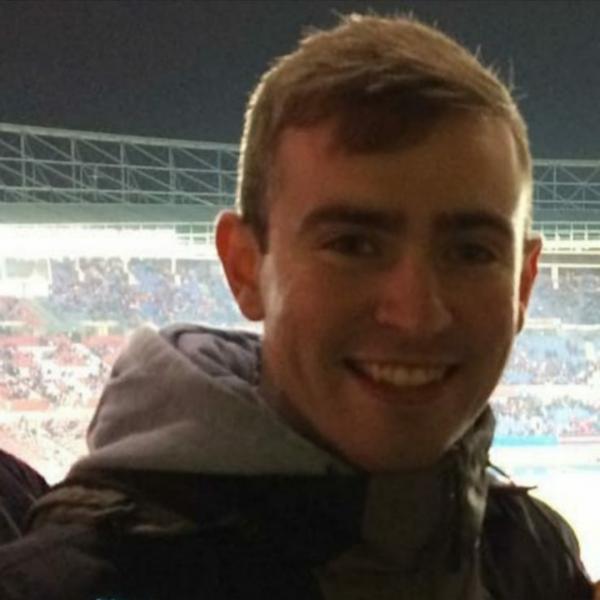
Hodgkins Lymphoma survivor Peter – ‘I thought once I was finished treatment I’d be back to normal, but it didn’t work out like that’
Peter Corcoran knew something was wrong when as a fit lad of 16 he was unable to complete a lap of the school pitch one day.
He had noticed some signs up to that point including a stubborn cough and increasing fatigue over the previous months, but nothing could prepare him for an eventual diagnosis of Hodgkin’s Lymphoma at his young age.
At the time Peter put his head down and got through treatment, which went “seamlessly” by his own recollection, but only in the years afterwards did the toll of the whole experience truly begin to show.
“I thought that once I was finished I’d be back to normal, not afraid to do anything after that experience, but it didn’t work out like that,” Peter says.
“I found myself very anxious and highly strung. I did a lot of irrational worrying around control, fear, guilt - all of that. I was thinking ‘I must have done something myself here’, questioning various different things: karma, religion, anything that could be questioned just to find a reason.
“It got to a stage as a young man where I even became a bit of a recluse.
I was almost afraid of life, afraid to be happy.
"You become stuck in that survival mode - just getting through days and that’s it, without seeing anyone or doing anything.”
Counselling
Things began to change for Peter when he eventually sought help in his 20s.
“We found a therapist who had been through cancer herself so she knew what I was going through. Taking that step changed my whole world. I’ve been working very hard at it, including changing some habits. It’s so much better when you have the tools and the awareness of what it’s all about, and how to deal with it.”
Peter wants to use his experience to light the way for others in difficulty, and he recently started his own podcast series called ‘Let Your Guard Down’ which deals with topics in the area of mental health.
“I denied and ran away from it for a good few years, but it didn’t go away; the fixes were only short-term. I refused to associate myself with being sick, so I wouldn’t go to a support group or talk to anybody.
“I want to push people to get themselves sorted as soon as possible and encourage them to speak up about it, talk about it, seek support where it is needed, and to know that there is support there available.”
Our funded counsellors are still providing free services around the country on a remote basis for adults and children, including those directly impacted by a cancer diagnosis either recently or in the past, family members or bereaved loved ones.
To enquire about a referral contact our Freephone Support Line on 1800 200 700 or email SupportLine@IrishCancer.ie
Contact the Irish Cancer Society Support Line
If you have worries or concerns about cancer, you can speak confidentially to an Irish Cancer Society Cancer Nurse through the Freephone Support Line on 1800 200 700.
Monday to Friday, 9.00am - 5.00pm
For more information
Phone
1800200700
